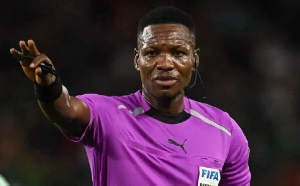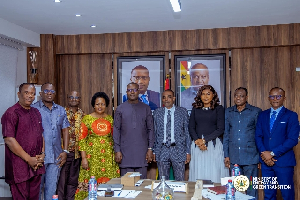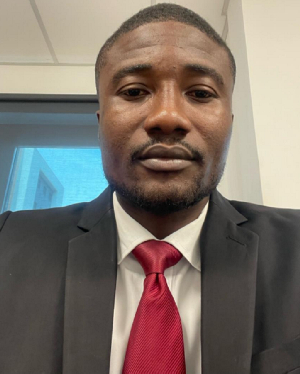It has been over a decade since the Persons with Disability Act (Act 715) was passed but persons with disability are yet to feel its full implementation, especially in their quest to access education and public services.
More often than not their experiences can best be described as “dehumanizing”.
The Disability Act provides that public buildings are made accessible to persons with disability; a provision that many public offices and institutions fault with impunity.
Samuel Aborga Zigli, a 25 year old student of the University of Cape Coast who lives with physical disability recounts the challenges he endures accessing teaching and learning in school.
But Mr. Boadu appearing on TV3’s New Day on Wednesday said explanations demanded of the President on decisions he make ought to be within the confines of the country’s constitution else the President is not obliged to provide same.
“If people ask for explanation, it must be asked within the context of what our constitution provides,” he pointed out, adding “If you ask for explanation on a particular issue and it is not provided within the contest of our constitution I don’t think there is the need to respond to it”.
When asked what caused the President to sack Mr. Agyarko, the General Secretary who sits in the Akufo-Addo government cabinet meeting explained that the appointment and dismissals of government officials is not always based on their competence.
Mr. Boadu indicated that a number of factors are considered in the processes.
“Sometimes reasons for appointments or disappointments have nothing to do with the competence of the individuals; sometimes it is about his attitude, sometimes it is about the way he implements projects, sometimes it is about the way he even receives people,” he stated.
He added that “there is no government that can go out there to announce that his minister is arrogant” for which reason he was sacked.
Touching on the performance of Mr. Agyarko, Mr. Boadu said he performed satisfactorily within the about one and a half years he served as the Energy Minister.
“Obviously he has shown within the almost one a half years of being a minister, he has shown that he’s competent, he’s shown that he’s capable of managing what was given to him to the extent that he’s been able to resolve the almost unending dumsor we faced as a country,” he said.
‘Some of my lectures are on third floors so I always need to strategise using my wheel chair as a walking aid, to climb staircase, I have tried to speak to the lecturers to change the class but I have not been successful’, he narrates his ordeal.
Section 22 of the act provides that public libraries are fitted with facilities that make them accessible to persons living with disability. But for over 10 years not much has been done as Samuel faces a harsh reality of accessing ICT services at the Sam Jonah Library in his school; a situation he says discourages him from going there.
There is an elevator at the Superannuation Hostel where Samuel lives which operates within 9am and 5pm but reading rooms are located on upper floors.
Like his hostel, other residential halls reserve rooms downstairs to accommodate persons with disability.
The Disability Act also makes it an offence when transport operators fail to allow seats for PWDs, a provision Samuel says the Metro Mass Transit terminal at Cape Coast complies, at least for him.
‘Anytime I embark on my jouney to the West after vacation, I get there and they tell ask me to relax as they sort me out, I don’t join a queue”, he said.
The problem according to Samuel however is, he having to discipline himself by holding on urination while on the about seven hour journey from Cape Coast in the Central Region to Sefwi Bekwai in the Western Region.
Samuel lives with his family at Sefwi Bekwai. He says he is victim of derogatory name calling but access to the disability common fund as provided in section 1 of the disability act is not forthcoming.
Samuel is just one of PWDs at Sefwi Bekwai who complain of delays in releasing the three percent common fund earmarked for PWDs .
For many of them, the money is a source of their livelihood without which poverty stares them in their faces.
Although it remains difficult to change buildings that were established before 2006 when the disability law was enacted, pavements suitable for persons with disability have been constructed on the principal streets of major cities in the country.
Traders have however converted pavements into market and drivers have also turned pavements into parking space making mobility a challenge for PWDs; a situation that hinders Samuel from streets of Sewfwi Bekwae.
This problem is not confined to his area alone; throughout the country pavements have prove as battle fields for PWDs.
General News of Thursday, 9 August 2018
Source: 3news.com













